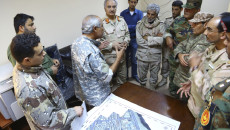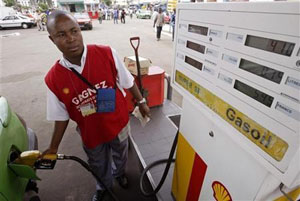There are eight monarchies in the Middle East: six in the Persian Gulf—namely, Saudi Arabia, the United Arab Emirates, Bahrain, Kuwait, Oman, Qatar—plus Jordan and Morocco. They’ve all been shaken in some way by the whirlwind of protests that have been stirring up the Arab world for months now. However, only two of them have reacted with a certain openness toward the protestors’ demands for greater democracy: Jordan and Morocco.
We’re well aware of what happened elsewhere. The military repression in Bahrain, which at one point also made use of Saudi troops, led to dozens of fatalities, police roundups and violence against people who asked that their so-called “constitutional monarchy” live up to its name. In Saudi Arabia, preventative measures were taken after over a hundred intellectuals signed a petition in early 2011, requesting political, economic and social reforms, a constitutional monarchy, the separation of powers and a constitution. Days ago, the whole world was relieved when the protest held by women, who are forbidden to drive there, didn’t result in a wave of arrests.
Oman: protests, fatalities and an attack on the government palace. Kuwait: moderate protests, at least compared to those in the other countries, were promptly stifled. Qatar: tensions even in Al Jazeera’s home country, with demands for greater democracy and the emir’s resignation. However, it was all over quickly.
In Jordan and Morocco, on the other hand, the situation has been very different. The protests are vigorous, but never aimed at the monarchy nor at King Abdullah II (Jordan) or King Mohammed VI (Morocco). And the response from the authorities is much, much more positive. In Jordan, the king dismissed the government and proposed broad reductions in the tax burden for the less fortunate, along with a reform program. In Morocco, Mohammed VI decided to relinquish some of his powers to the head of government, who is voted in directly by the citizens, thus paving the way for a parliamentary monarchy.
How can one explain the difference between these Muslim, Sunni and Arab nations that are nevertheless all monarchical? There’s only one logical explanation: oil. The Gulf monarchies are oil rich. The ones farther from the Gulf, not at all. Saudi Arabia, Bahrain & Co. have been tacitly authorized by the U.S. and other powers (China and Russia at the top of the list) to repress public protests in short order and ignore their demands for democracy in the name of the oil market’s stability. Jordan and Morocco have been left to their own devices and the inevitable negotiations with their dissatisfied population.
And so, once again, oil has come into play not only as a political factor (which has been happening ever since the first oil field was discovered) but also as a factor of political preservation (which, to be honest, has always happened). However, the fact remains that oil monarchies have almost always made very poor use of the profits from their black gold. The earnings from the oil boom in the 1980s were invested primarily in foreign purchases, from Harrods to Ferrari, a series of speculative investments that ultimately enriched the sheiks’ infinite families.
The boom in the 2000s (let’s remember that oil prices soared to 150 dollars a barrel back in 2008) saw profits that for the most part flowed back into the producer countries, yet with dynamics that once again penalized the local populations. The bulk of the investments ended up in the real estate sector and the oil industry, in speculations with high, fast yields, which offered employment primarily to specialized workers. Agriculture, tourism and construction received little and, in any case, most workers were low-cost immigrants recruited from abroad, especially from Asia. The result: 80% of the private industry workforce in Gulf monarchies is foreign. Repression or no repression, the problem has only been delayed. One day, the monarchies in Jordan and Morocco might even find they owe their salvation to the protests of recent months.





This is among the most incredible blogs Ive read in a very lengthy time. The amount of details in here is stunning, like you practically wrote the book on the subject. Your weblog is fantastic for everyone who desires to comprehend this subject more. Excellent stuff; please keep it up!